#but I found it in the states
Text
I’m a child

5 notes
·
View notes
Text
"aphobia doesn't exist"
bitch literally not that long ago an aroace youtuber animator was insulted by almost half of its community for being it
#i did some research about it and found out that the problem was principally that she had previous experience in the romantic area#so people just didn't take her seriously and said she was lying#even though she stated multiple times that she wasn't comfortable in those situations#now things are more calmed but damn#mind your own bussiness#i believe she knows more about herself than you#sorry if i offended you with this comment but i hate how aro/ace/aroace people are always left behind#insulted and rejected because they “dont know what they are talking about”#or because they “just have to wait for the right person”#or because they are “psychopaths and they are missing something”#i love that animator and she helped me realise a lot about myself#and now that i know the context i think i will start making a list and killing aphobes one by one#aromantic#arospec#asexual#aroace#acespec
9K notes
·
View notes
Text
also in regards to that last article about varied ways of thinking about psychosis/altered states that don't just align with medical model or carceral psychiatry---I always love sharing about Bethel House and their practices of peer support for schizophrenia that are founded on something called tojisha kenkyu, but I don't see it mentioned as often as things like HVN and Soteria House.

ID: [A colorful digital drawing of a group of people having a meeting inside a house while it snows outside.]
"What really set the stage for tōjisha-kenkyū were two social movements started by those with disabilities. In the 1950s, a new disability movement was burgeoning in Japan, but it wasn’t until the 1970s that those with physical disabilities, such as cerebral palsy, began to advocate for themselves more actively as tōjisha. For those in this movement, their disability is visible. They know where their discomfort comes from, why they are discriminated against, and in what ways they need society to change. Their movement had a clear sense of purpose: make society accommodate the needs of people with disabilities. Around the same time, during the 1970s, a second movement was started by those with mental health issues, such as addiction (particularly alcohol misuse) and schizophrenia. Their disabilities are not always visible. People in this second movement may not have always known they had a disability and, even after they identify their problems, they may remain uncertain about the nature of their disability. Unlike those with physical and visible disabilities, this second group of tōjisha were not always sure how to advocate for themselves as members of society. They didn’t know what they wanted and needed from society. This knowing required new kinds of self-knowledge.
As the story goes, tōjisha-kenkyū emerged in the Japanese fishing town of Urakawa in southern Hokkaido in the early 2000s. It began in the 1980s when locals who had been diagnosed with psychiatric disorders created a peer-support group in a run-down church, which was renamed ‘Bethel House’. The establishment of Bethel House (or just Bethel) was also aided by the maverick psychiatrist Toshiaki Kawamura and an innovative social worker named Ikuyoshi Mukaiyachi. From the start, Bethel embodied the experimental spirit that followed the ‘antipsychiatry’ movement in Japan, which proposed ideas for how psychiatry might be done differently, without relying only on diagnostic manuals and experts. But finding new methods was incredibly difficult and, in the early days of Bethel, both staff and members often struggled with a recurring problem: how is it possible to get beyond traditional psychiatric treatments when someone is still being tormented by their disabling symptoms? Tōjisha-kenkyū was born directly out of a desperate search for answers.
In the early 2000s, one of Bethel’s members with schizophrenia was struggling to understand who he was and why he acted the way he did. This struggle had become urgent after he had set his own home on fire in a fit of anger. In the aftermath, he was overwhelmed and desperate. At his wits’ end about how to help, Mukaiyachi asked him if perhaps he wanted to kenkyū (to ‘study’ or ‘research’) himself so he could understand his problems and find a better way to cope with his illness. Apparently, the term ‘kenkyū’ had an immediate appeal, and others at Bethel began to adopt it, too – especially those with serious mental health problems who were constantly urged to think about (and apologise) for who they were and how they behaved. Instead of being passive ‘patients’ who felt they needed to keep their heads down and be ashamed for acting differently, they could now become active ‘researchers’ of their own ailments. Tōjisha-kenkyū allowed these people to deny labels such as ‘victim’, ‘patient’ or ‘minority’, and to reclaim their agency.
Tōjisha-kenkyū is based on a simple idea. Humans have long shared their troubles so that others can empathise and offer wisdom about how to solve problems. Yet the experience of mental illness is often accompanied by an absence of collective sharing and problem-solving. Mental health issues are treated like shameful secrets that must be hidden, remain unspoken, and dealt with in private. This creates confused and lonely people, who can only be ‘saved’ by the top-down knowledge of expert psychiatrists. Tōjisha-kenkyū simply encourages people to ‘study’ their own problems, and to investigate patterns and solutions in the writing and testimonies of fellow tōjisha.
Self-reflection is at the heart of this practice. Tōjisha-kenkyū incorporates various forms of reflection developed in clinical methods, such as social skills training and cognitive behavioural therapy, but the reflections of a tōjisha don’t begin and end at the individual. Instead, self-reflection is always shared, becoming a form of knowledge that can be communally reflected upon and improved. At Bethel House, members found it liberating that they could define themselves as ‘producers’ of a new form of knowledge, just like the doctors and scientists who diagnosed and studied them in hospital wards. The experiential knowledge of Bethel members now forms the basis of an open and shared public domain of collective knowledge about mental health, one distributed through books, newspaper articles, documentaries and social media.
Tōjisha-kenkyū quickly caught on, making Bethel House a site of pilgrimage for those seeking alternatives to traditional psychiatry. Eventually, a café was opened, public lectures and events were held, and even merchandise (including T-shirts depicting members’ hallucinations) was sold to help support the project. Bethel won further fame when their ‘Hallucination and Delusion Grand Prix’ was aired on national television in Japan. At these events, people in Urakawa are invited to listen and laugh alongside Bethel members who share stories of their hallucinations and delusions. Afterwards, the audience votes to decide who should win first prize for the most hilarious or moving account. One previous winner told a story about a failed journey into the mountains to ride a UFO and ‘save the world’ (it failed because other Bethel members convinced him he needed a licence to ride a UFO, which he didn’t have). Another winner told a story about living in a public restroom at a train station for four days to respect the orders of an auditory hallucination. Tōjisha-kenkyū received further interest, in and outside Japan, when the American anthropologist Karen Nakamura wrote A Disability of the Soul: An Ethnography of Schizophrenia and Mental Illness in Contemporary Japan (2013), a detailed and moving account of life at Bethel House. "
-Japan's Radical Alternative to Psychiatric Diagnosis by Satsuki Ayaya and Junko Kitanaka
#personal#psych abolition#mad liberation#psychosis#altered states#antipsych#antipsychiatry#mad pride#peer support#schizophrenia#i have a pdf of the book somewhere if anyone wants#the book and the documentary also discuss some of the pratical struggles in creating a community like this which i also found helpful as#someone who is very interested in helping open a peer respite.
2K notes
·
View notes
Text
So in the United States a convicted felon is NOT allowed to vote, but IS allowed to run for President
EXPLAIN THE LOGIC
#donald trump#news#united states news#fuck trump#stormy daniels#trial#trump hush money trial#verdict#i mean im just glad he was found guilty at this point
982 notes
·
View notes
Text

#russia is a terrorist state#ukraine#this#yes#yes please#I MEAN HE ASKED FOR THIS#lmaoooooo#(found on twitter)
433 notes
·
View notes
Text
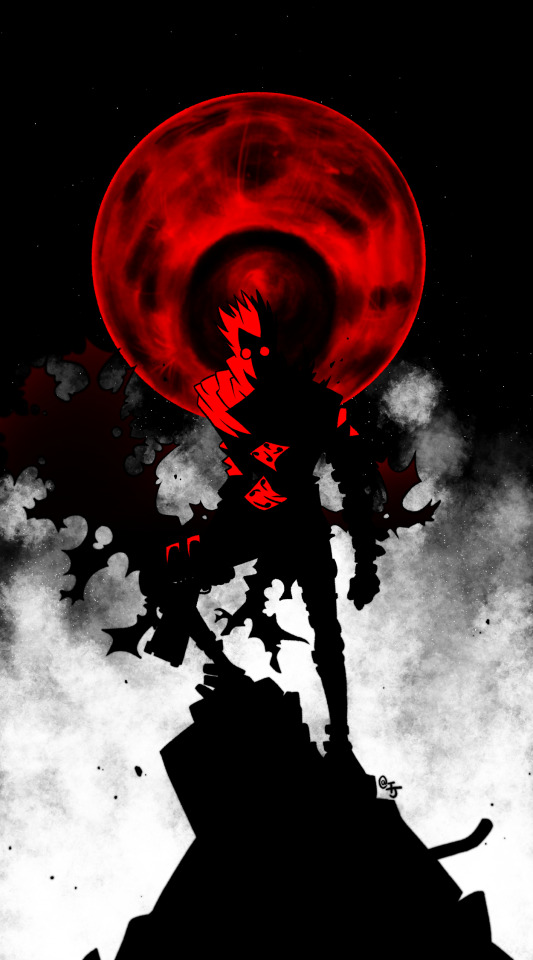
From the firmament above, a blood-red eye looks down upon us.
#entered a fugue state at 3am and when i woke up after sleeping 12hrs later i found this on my computer#probably didnt help i was listening to every devil-related soundtrack kensuke ushio has made lmao#vash the stampede#trigun#trimax#listen listen listen. i love me a good ol goofy pathetic loser#but lord. do i also love it so so much when that same loser turns Absolutely Fucking Terrifying#you really fucked around and now you're gonna find out#manga#illustration#artists on tumblr#drawing#my art#comic#fanart#fuck me up el diablo
745 notes
·
View notes
Text
If we all work together we can make a Venom story where the symbiote makes Eddie transgender
#my stuff#i really like venom and the symbiote ever since i read abt him in spider-man comics as a kid and obv the original trilogy was so good#ever since i heard abt the concept i’ve been fascinated and found it a really good and more tangible representation of my mental state#half of me is/was trying to be a normal human boy and the other half is violently transgender and feral#and the longer i tried to pretend i wasn’t trans and that i was totally a good son who put everyone else first#the louder. hungrier. more selfish. and more angry the other part of me got#so we’re working towards a compromise 🖤
384 notes
·
View notes
Text
You know how white people use being scared as a weapon?
All those videos of white women saying, "I called the cops because I felt like I was in danger" and how white guys have tiktoks about, "You need at least one semi automatic weapon close at hand at all times to defend your family" kinda shit?
That's what bothers me so much about watching fellow jews acting like just seeing a Palestinian flag or keffiyeh somehow automatically makes a place unsafe.
I mostly see it in US American jews posting about how they feel threatened by a Palestinian flag, or saying that anything referencing not wanting thousands and thousands of Palestinians to die is 'a call for jewish genocide'
Y'all. No. This tells me you have never interacted with a Palestinian or even the Muslim community at large. We diaspora Jews are not the victims here.
Your assimilation has ended on the path of weaponisation of your fears, which is not a great place to be.
If you honestly believe "The only safe place in the world for Jews is Israel" you've bought into someone fearmongering. I'm begging you to investigate why you bought that lie and who is benefiting from you buying it
#I'm tired of thinking i've found jewish community only to find people who are blinded by their unfounded fears and taught to hate#palestinians are our cousins not our enemies#jumblr#i've been blocked a lot so I doubt people who need to read this will see it but I will continue sending this message#is there antisemitism? you bet your ass!#however if you think saying palestinians shouldn't die and should have their state recognised is a antisemitic you've drunk the koolaid
996 notes
·
View notes
Text





It's the most fun I've had at sea in ages 💕
#an old post in my drafts i found#ofmd#our flag means death#blackbonnet#gentlebeard#ofmdann edits#discomfort in a married state#ofmd gifs#edward teach#stede bonnet#S01E04
256 notes
·
View notes
Note
I need to say this, Whenever You Draw saxton like normal and his eyes are just .w. I find it absolutely adorable. Makes him more of a himbo

the most innocent look he could make
#he often made that 'dot-eye face' when he's in his vulnerable state in some comic panels#which i found him so silly def one of the best characters in tf2 universe#tf2#tf2 saxton hale
1K notes
·
View notes
Text

the bone plot if it was a bestselling book at your local Waterstones
#bbc ghosts#this made me go AUGHHHH once i added the text lmao#sir humphrey bone#humphrey bone#bbc ghosts fanart#larry rickard#laurence rickard#art#illustration#digital art#artists on tumblr#the bone plot#csp#clip studio paint#also I just found out that bbc ghosts is called Ghosts UK here in the united states and i was like??? ew#not in my house#also i love sir humphrey
665 notes
·
View notes
Text
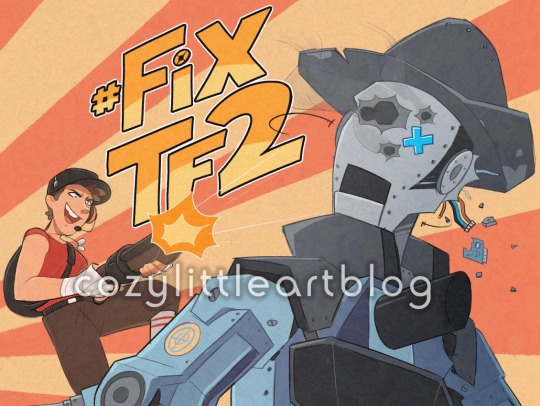
when valve has enough money to buy god, but they let bots ruin their game for 5 years and dox people 🤖🔫 #FIXTF2
everyone who signs this 100k+ petition will have their name printed and sent to valve HQ. this shit is unacceptable.
#fixtf2#savetf2#team fortress 2#valve#i know hashtags dont work on tumblr in text posts but thats what the movement is called yknow#why are you - as valve - getting pwned by basement dwellers#art#tf2 fanart#scout#scout tf2#artists on tumblr#tf2#the bots were bad and annoying but then i found out they were literally committing felonies. i love valve but i hope they get sued now#TF2 is statistically and objectively one of THE most iconic FPS games of all time. it defined the genre. it persists at over 15 years old#it deserves so much better than this. its been five fucking years#TF2 basically got me *into* video games. it's art humor and characters have been MASSIVELY inspirational for me#i've made lifelong friends through TF2. this goofy hat simulator means A Lot to me and thousands of other people#2024 marks 10 years since I got into TF2 - late july 2014. it hurts to see the game in such a sorry state#but it's so nice to see people fighting for it again. if the world of warcraft guys can win maybe we can too#give it everything you've got boys o7 this is mainly a twitter movement but post it Everywhere You Can
395 notes
·
View notes
Text
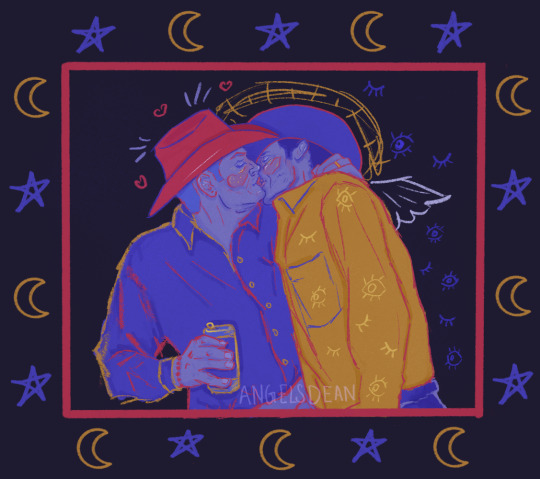
COWBOYS ARE FREQUENTLY SECRETLY KISSING EACH OTHER
#hi pls accept my humbly offered cowboy smoochie smooch#i saw something last night w/ the 'cowboys are frequently secretly fond of each other' line and my mind went 'they're also kissing'#so i busted out the ipad and found a reference image and went into flow state for like 4 hrs#also i wanted to experiment with some bolder colors#destiel#deancas#destiel art#deancas art#yeehaw#smooches#myart
1K notes
·
View notes
Text
Somebody said Chetan Bhagat is the Colleen Hoover of India and I have never agreed with something more
#no like I read 2 states and it’s the first time I found a novel worse than its film adaptation#desiblr#desi tumblr#desi#desi shit posting#desi tag#desi thoughts#desi things
241 notes
·
View notes
Text
I do the opposite of doing too much. I will lie down on the ground for hours. I will say nothing about something for as long as I can. I will be in a state of inaction for days. I do the bare minimum. If even that
#I genuinely can’t be bothered and I think that’s how I am in my natural state#I think I experience anxiety at things as like a knee jerk response but im over it pretty quick id literally rather be a slug#Who the fuck cares genuinely#The kind of clarity that can only be found in a tennis court at sunset
272 notes
·
View notes
Text
been trying to get the cars groove back have a sketch dump
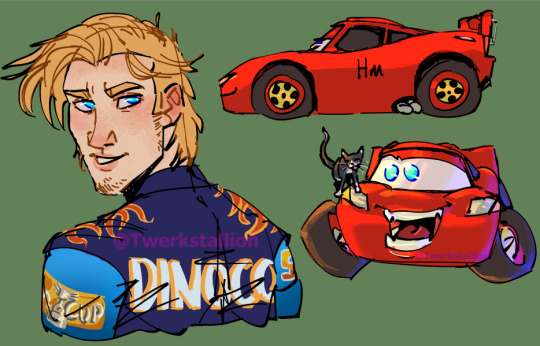

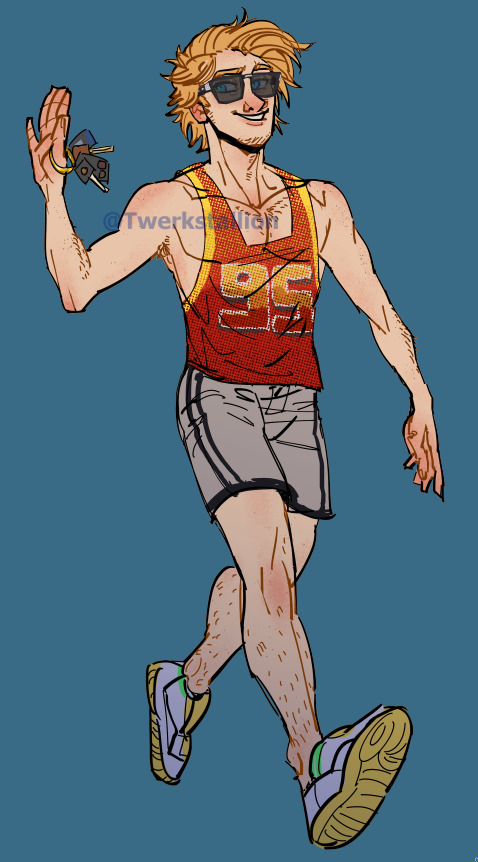
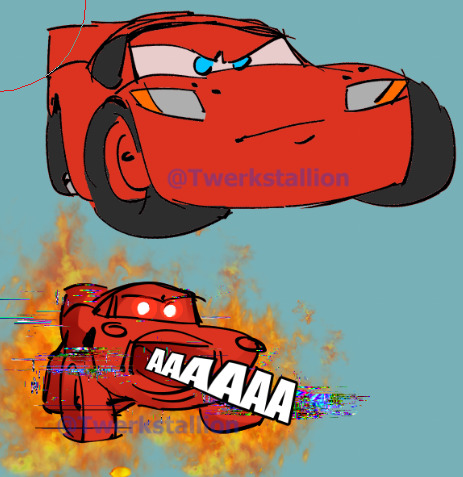
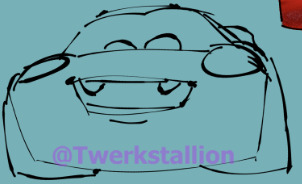
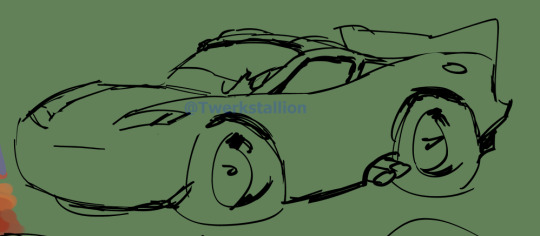
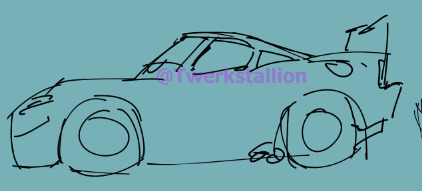
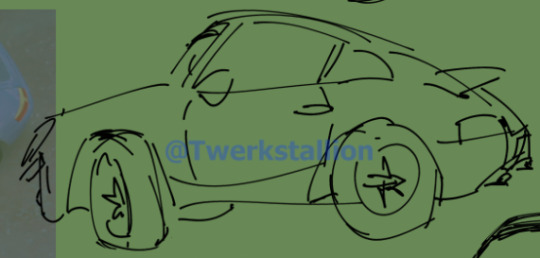
#pixar cars#lightning mcqueen#sally carrera#cars 2006#cars fandom#my art#i also got a new brush recently ive been so excited about#finally ive found a comfortable way to return to variated line weight#look at this thang... obsessed with his stupid bangs#they change sides every time he turns his head.on purpopse.#and yes im planning to branch back out into more characters i just gotta get my mcqueen wiggles down first#<-Sisyphus said as the boulder rolled back down the hill#so far tho not in a frantic way im obsessed in a much calmer way#a lot of what can be said about the text has already Been said#so im gonna invent my own cars 4 (again) bc no way do i ever want pixar to in the sad state its in (disney too)#stay away..im planting my flag... mcqueen is my babygirl now...#our (fandom) babygoirl
296 notes
·
View notes